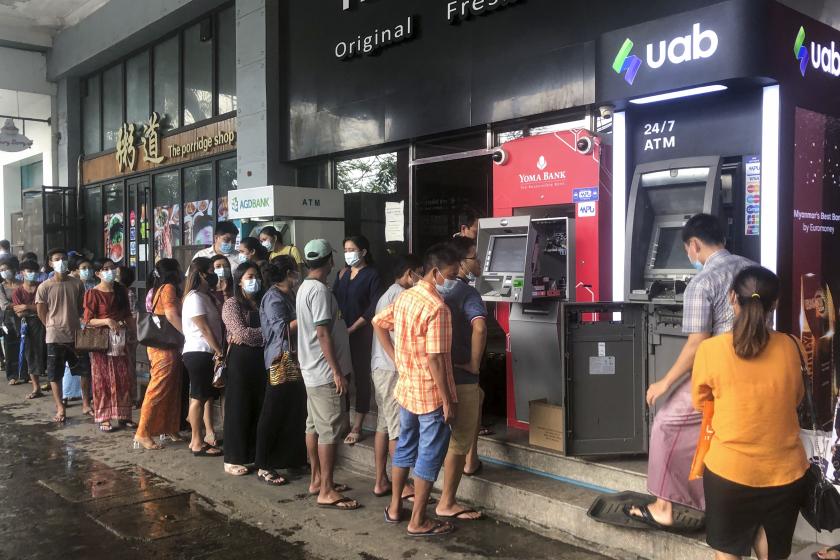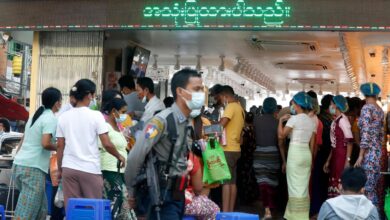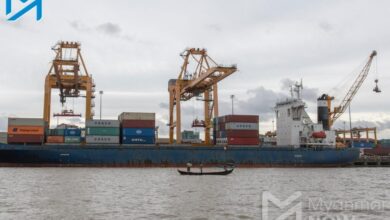
Myanmar’s economy will lose around one million jobs and shrink by 18% for the year to September 2021, the World Bank forecast on Monday, thanks to the combined impact of the Covid-19 crisis and the February 1 military coup.
While the Bank forecast in December that the economy would start to recover from the pandemic by March this year, its new economic monitor report paints a dire picture of the devastation wrought by Min Aung Hlaing’s junta over the past six months.
The 18% contraction means the economy will be 30% smaller than it would have been without the pandemic and the coup, the Bank said.
And the share of the country’s population living in poverty is expected to more than double by the beginning of next year compared to 2019 levels, it added. Many of those who keep their jobs will face lower incomes because of reduced hours and wages.
“The loss of jobs and income and heightened health and food security risks are compounding the welfare challenges faced by the poorest and most vulnerable, including those that were already hit hardest by the pandemic last year,” said Mariam Sherman, the Bank’s Country Director for Myanmar.
Because of the impact both crises have had on investment, the supply of skilled workers, and the business environment, the longer term prospects for economic growth also look significantly weaker, the Bank said.
Many foreign investors, including food and beverage franchises, garment factory operators, and telecoms giant Telenor, have fled Myanmar amid the violent suppression of anti-military protests, labour shortages, and disruption to critical services like logistics, telecommunications, banking, health and education.
Large numbers of workers in numerous sectors have gone on strike as part of efforts to topple the regime. Banks were forced to close in the aftermath of the coup because of industrial action, while account holders at military-owned banks rushed to withdraw their savings, causing cash shortages.
“Despite bank branch re-openings and several interventions from the Central Bank of Myanmar, physical currency continues to be in short supply and access to banking and payment services remains limited,” the report said.
Kim Alan Edwards, senior economist for Myanmar at the World Bank and one of the authors of the report, said mobility had improved and logistics disruption had eased in some areas of the country over the last two months.
But he added that overall economic activity remained very weak. “A further contraction is likely from July onwards due to the recent surge in Covid-19 cases,” he said.
Vicky Bowman, Director of the Myanmar Centre for Responsible Business, said “a return to genuine civilian democracy” was essential if economic growth was to resume in Myanmar.
“The damage to the economy has been caused by a combination of Covid, and a lack of confidence in Myanmar due to the military takeover, the behaviour of the army, and a lack of belief that a peaceful democratic political solution can be found,” she said.
“There is further risk that the economy will become more based on illegal activity, from which men with guns extract a ‘rent’,” she added.
“There are already early signs of increased dependence on extractive and/or illicit activities,” the Bank’s report said, “and a return to the inward-looking policies that have characterised much of Myanmar’s history.”



